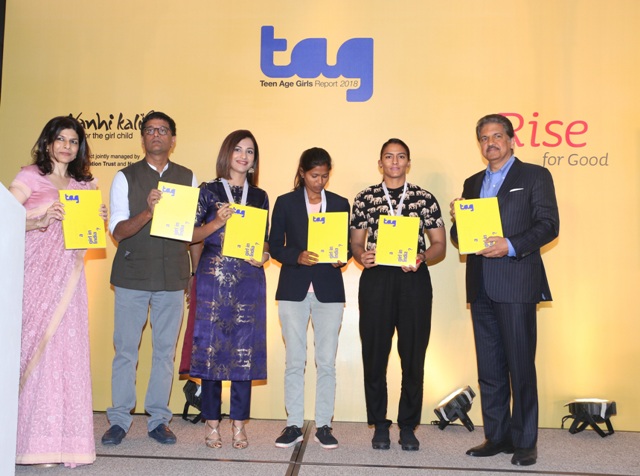India is home to the largest and youngest workforce in the world today. Having reached this pivotal demographic point in our economic and political history, and in light of our long engagement with girls, investment in our girls is a national priority that can no longer be sidelined. Investment in their health and wellbeing, their education and skilling, their productivity, economic potential and leadership.
This resonates with findings of UN agencies and other leading development organizations that show the many ways in which investment in health, education and livelihood for girls and women create powerful ripple effects benefitting entire society. Studies have estimated that ensuring 10% increase in girls going to school can increase the national income (GDP) by three percentage points. Every extra year a girl spends in school increases her income by no less than 10 to 20%; the return on secondary education is even higher and goes up 15 to 25%.
Since women reinvest 90% of their income in their families as opposed to men who plough back less than half this amount, increase in incomes of women has proven intergenerational benefits that lift entire families and communities out of poverty. The Beti Bachao Beti Padhao campaign of the Government of India is further recognition of the importance of investing in girls. As recently as January 2018, the Mann ki Baat radio programme of India’s Prime Minister was about the need for empowered and self reliant women in the country.
However, ground realities remain miles away from optimal realization of potential of girls and women.
Government of India’s Economic Survey 2018, for the first time, contains a separate chapter on Gender Equality. The title of the chapter itself questions whether development is an ‘antidote’. The basis of this question is the fact that some women-related indicators do not seem to be responding positively to economic growth.
Indicators such as female labour force participation, use of reversible contraception and preference for sons. It highlights the shocking statistics of 21 million “unwanted” girls and 63 million “missing” girls.
In a country of 80 million 13-19 year old girls, the absence of a reliable, representative body of evidence on teenage girls and their lives seemed to be a critical data gap. In its absence, we saw the way our policies and programmes had largely assumed that an adolescent girl is either a helpless victim who needs to be protected from violence; or is a prospective mother who needs to be nourished well and vaccinated on time so that she can give birth to healthy babies.
Our policies and programmes had not taken into consideration the various activities and experiences that make the life of a teenage girl, her aspirations and her challenges and the numerous ways in which she negotiates agency in a world that is dominated by men. This realization became the impetus for starting a direct conversation with girls across the country’s length and breadth through a large scale survey.
The survey findings have been used to prepare a TAG Index which compares the performance of each state on status of their teenage girls. It can be considered as a roadmap for policy makers, researchers, activists and the ordinary citizen of India. It is brought to you by Project Nanhi Kali, and compiled by Naandi Foundation, with grant support from Mahindra & Mahindra Ltd.


